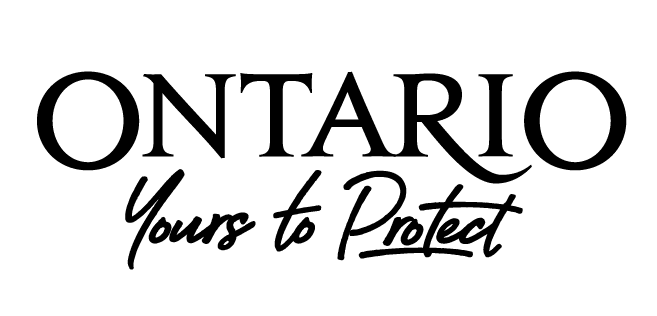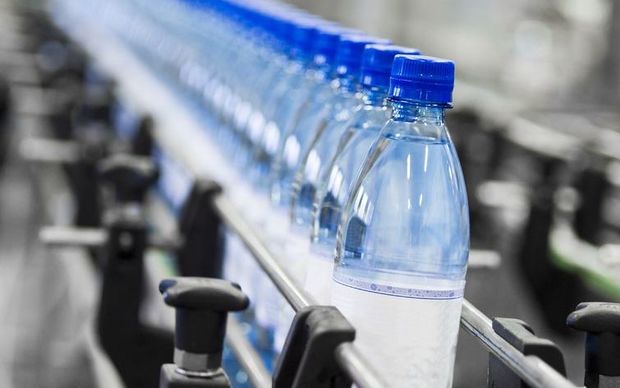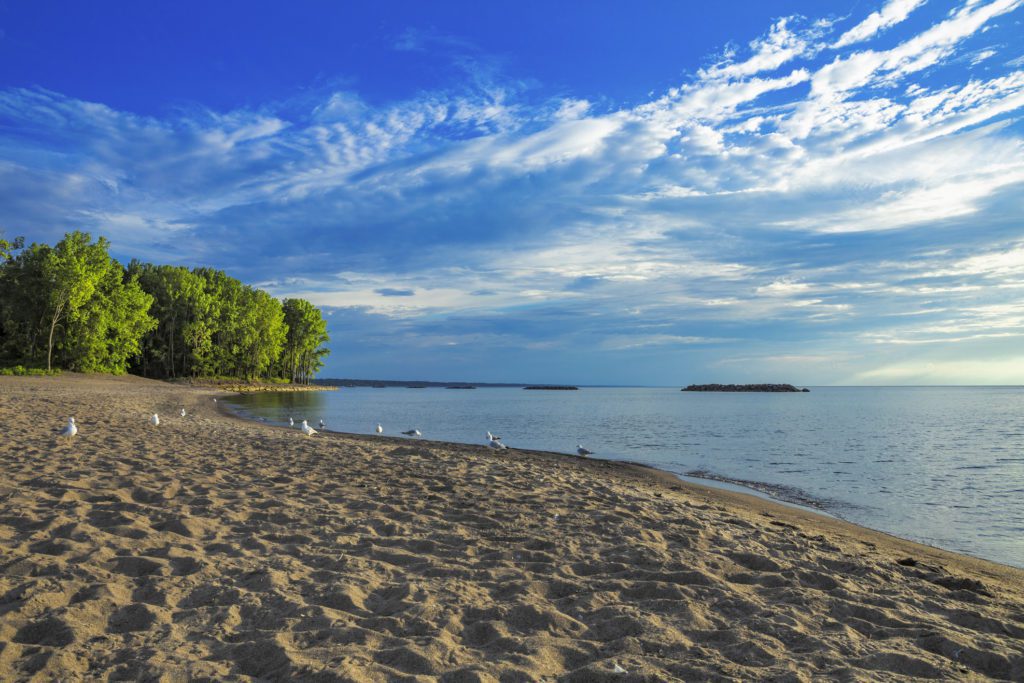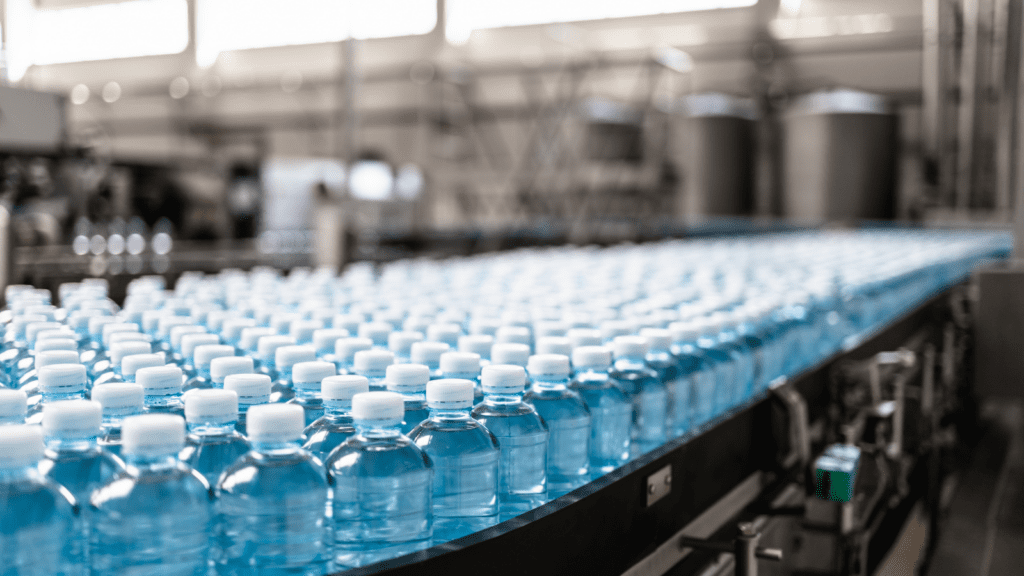Over the past couple of months, the bottled water industry in Ontario has been under fire. This week, the government announced it is taking action, and now is our chance to help rewrite the rules for water bottlers.
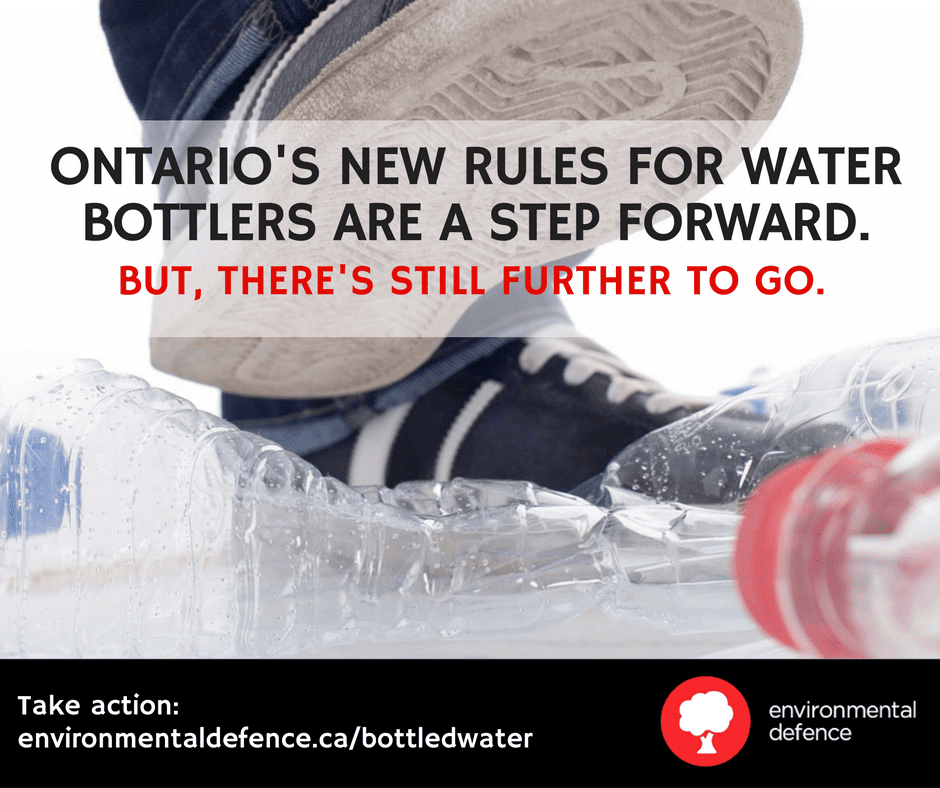 In response to public outcry, Ontario has proposed new rules for water bottlers. In a press release, the Ministry of Environment and Climate Change announced a two-year moratorium on all new and expanded water bottling operations, and stricter rules for the renewals of existing ones – like the renewal Nestlé has requested for its Aberfoyle facility. This is an important first step in ensuring Ontario’s groundwater is protected.
In response to public outcry, Ontario has proposed new rules for water bottlers. In a press release, the Ministry of Environment and Climate Change announced a two-year moratorium on all new and expanded water bottling operations, and stricter rules for the renewals of existing ones – like the renewal Nestlé has requested for its Aberfoyle facility. This is an important first step in ensuring Ontario’s groundwater is protected.
For months, residents in Guelph, Ontario, have been fighting to block Nestlé’s application to renew its permit to extract up to 3.6 million litres of groundwater per day from a well near Aberfoyle. And more recently, the public was enraged to learn that Nestlé had outbid a small Ontario community for access to a well in Middlebrook for “future business growth”. To make matters worse, water bottlers – like Nestlé – pay only $3.71 per million litres of water they extract! Not even enough to cover the costs associated with managing arguably our most precious resource – let alone the multitude of other stressors (such as plastic pollution) that result from the bottling business.
With the threats of climate change and population growth, Ontario’s water will only face increasing stress in the years ahead. And unlike other water-taking activities, the majority of the water sucked up for bottled water doesn’t return to the same watershed that it came from. This extractive activity can have significant negative long-term effects on groundwater levels. The government’s announcement will give a reprieve – much needed time to rewrite the rules, and make sure they put municipal and agricultural water needs first.
When Ontario’s proposed regulation takes effect at the beginning of January 2017, no new permits will be issued to bottlers until January 2019 for:
1. New water-taking activities;
2. Expanded or increased water-takings at existing facilities; and
3. Pumping tests to determine whether a water source is a possible future new or expanded water bottling operation.
And, starting immediately bottlers applying for renewal will have to post their applications on the Environmental Registry for a mandatory 60-day public comment period.
During the moratorium, the province has committed to:
1. Examining the current water pricing system and considering additional funding mechanisms that could protect and conserve water, and address the broader environmental, economic and social impacts of water bottling operations in Ontario;
2. Reviewing the existing rules for water taking to determine whether the rules effectively protect and conserve water for future generations; and
3. Undertaking additional research to better understand groundwater in Ontario, and how climate change and population growth may impact future groundwater supplies.
While this announcement will make a difference, the devil is in the details. For example, requiring greater transparency and ongoing monitoring are steps in the right direction, but these activities can’t be left in the hands of companies that are extracting public water. Our government must be responsible for ensuring that groundwater is protected, and communities’ access to clean drinking water is guaranteed.
The government is right to single out water bottlers – and to take action to protect water. But while they’re taking steps to deal with bottled water, they also need to address the plastic pollution that comes with it. Over a billion plastic bottles end up in landfills or littered in the environment in Ontario each year. If we want to see plastic bottles end up where they belong (recycled), Ontario needs a deposit return program, like the one already in place for beer and wine bottles. Ontario is one of only two provinces without a deposit return program for plastic bottles, and it has the lowest plastic bottle recycling rates in the country. It’s time for Ontario to catch up.
Help us turn the plastic tide, and curb the flow of plastic into Ontario’s waterways. Sign our petition and tell Ontario to “Cash it, Don’t trash it” by putting in place a deposit return for plastic bottles.
And check back with us later this month to send your comments to the province and help them write new rules for water bottlers!



